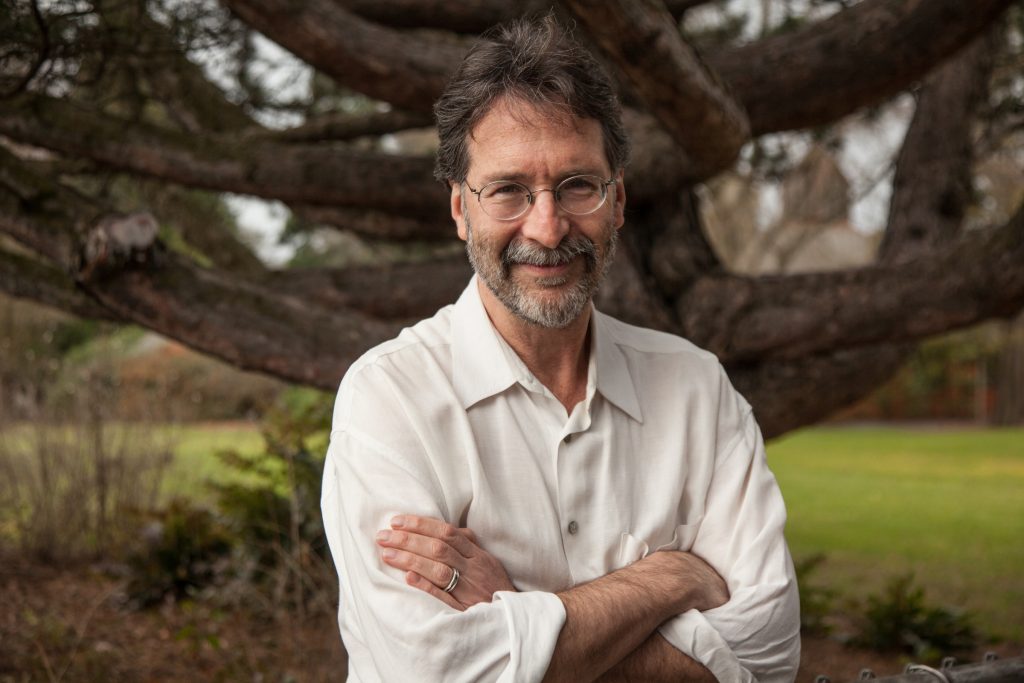Is it possible to write about joy without sounding sentimental or trite? The fiction and non-fiction of Brian Doyle—who died last year at 60 from brain cancer—suggests that joy is most palpable when it is couched in play and strangeness. An Irish Catholic who reads like James Joyce without the cynicism and religious doubt, Doyle’s the rare writer who earnestly wrote about faith for secular publications like The American Scholar, Orion, and The New York Times.
His goofy, self-effacing tone is delivered in sharp, skilled sentences that evade the sentimental with their transparent strangeness. In the year since his passing, there’s been a relative vacuum of writers like him: people writing about authentic religious faith and joy for secular publications as a form of authentic witness, not proselytizing. Some might call such a method restraint, but I think it is an action of craft. Flannery O’Connor wrote that for writers, the “Catholic influence has to come at a deeper level. I was brought up in the novena-rosary tradition too, but you have to save yourself from it someway or dry up”; she was affirming that Catholic writers needed to find new ways to articulate their faith for an often-skeptical audience. This is often a challenge for writers of faith, since belief is a sentimental experience.
Doyle was able to bring that faith to the page. He was a prolific writer. In addition to his essays, collected in books such as Grace Notes, Credo, and Leaping: Revelations and Epiphanies, he also published the novels Mink River, Martin Marten, Chicago, and The Adventures of John Carson in Several Quarters of the World.
His sentences nearly burst of the page, riding their rhythms to the margins. To read Doyle write about any topic was to watch that subject gain new life. On snow: “Snow starts out white and then gets grayer and browner and finally sometimes even black as if it rotted, which in a real sense it does. As with many things, a little is delightful and a lot is burdensome. Somehow time slows and even stops when snow begins to swirl.” On a bee buzzing during Mass: “The words in the air with the bee have been powerful and spare, as simple and sweet and dangerous as the bee, as potentially painful and penetrating, like nails through palms.” On kneeling: “Faced with the awesome, we drop to our knees, we deliberately reduce ourselves, we abandon at least some of our precious status and power.”
The power of his words comes from his vision—a peculiar sensitivity to the contours of our world, in the tradition of Gerard Manley Hopkins—and his trust in language to do wild things to our hearts. I once asked Doyle if there was a connection between his Catholicism and his approach to language. He reflected on the “chant and the rhythms of ritual language—one of the subtle pleasures of the Mass and much Catholic sacramental language is the rising and falling repetition of it—to say the rosary for example with others in concert is really to fall into a meditative call and response thing ancient beyond imagination.” Sentimental writing borne of faith often relies on clichés because writers get carried away with the passion of their belief, and let their imaginations become lazy. They grasp canned phrases and tired stories. Doyle turned his sentimental feelings into unusual, beautifully strange creations.
Doyle was the prototypical writer of joy because he actually had fun writing: he saw prose as an opportunity to let loose, discover unusual connections, and find humor in the everyday. He told me that “more and more as the years pass I think that spiritual substance and honesty and egolessness and real vision is flagged by humor.” Humor allows writers “odd juxtaposition of image…We laugh because we are startled, sort of — and what a great way to dream and imagine things that might be.”
A cradle Catholic, his continued attraction to the Church came from that place of joy. Doyle was a realist—sadly, the final year of his life was filled with the worst of struggles due to his medical condition—but he was absolutely an optimist. He saw Catholic faith as “far more joyous, far more celebratory, far more invitation to partnership, far more expectation of responsibility in creating the wonder of the future than mere acceptance of Mastery . . . Catholicism is not Master and Servant—it is Father asking children to rise to their best selves, to accept responsibility, to use their holy tools to create what can be.”
We need Catholic writers like Brian Doyle: people who can deliver faith-bursting stories and essays to a skeptical audience. He was humble about this form of witness: “All we can do is drape words on experience, and hope the words give some hint of the shape of the moment, and pray that our attentiveness matters in a way we will never know.” When I read Brian Doyle, I want to become a better writer, but even more, I want to become a better person. He reminds me that the latter is infinitely more important.
Nick Ripatrazone has written for Rolling Stone, Esquire, The Atlantic, and is a Contributing Editor for The Millions. He is writing a book on Catholic culture and literature in America for Fortress Press.
Start your day with Always Forward, our award-winning e-newsletter. Get this smart, handpicked selection of the day’s top news, analysis and opinion, delivered to your inbox. Sign up absolutely free today!

